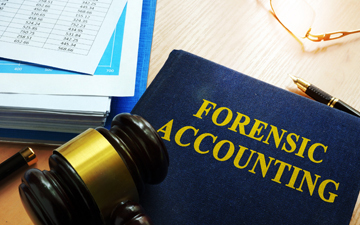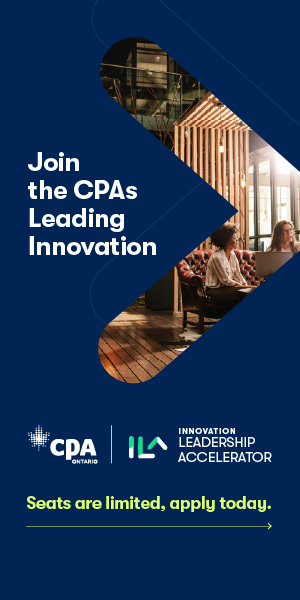New UTM Master of Forensic Accounting Program stands out globally

University of Toronto Mississauga MFAcc degree gives forensic accountants the tools to catch modern-age white-collar crime, says Len Brooks, FCPA, FCA
TORONTO, April 11, 2018 – White-collar crime isn’t what it used to be.
Patterns are evolving, techniques are becoming increasingly sophisticated, and perpetrators are well-equipped with the digital tools and financial backing that make execution easier and evasion possible.
These new modes of crime require new modes of prevention and detection, and specially trained professionals who know what to look for. Helping to train this new class of specialist is the University of Toronto Mississauga’s new Master of Forensic Accounting program.
The program launched in the fall of 2017, replacing the school’s previous diploma in investigative and forensic accounting. It’s one of the only such programs in the world to offer a standalone graduate degree in forensic accounting.
“It’s a really interesting field, and one that I think is going to grow dramatically,” says program director Len Brooks, FCPA, FCA. “One of the reasons we wanted to create the master’s program was to make sure there was some place that was educating talented individuals to be able to catch these modern-age criminals. Our people are able to do the forensic accounting work that’s been done for years, but we’re also building in cybercrime, data analytics, and other techniques and knowledge that they’re going to need for the future.”
Online UTM MFAcc program has global reach
The program consists of 10 courses, delivered part-time over a two-year period. With the exception of an on-campus residency session at the end of the period, the program is delivered entirely online; there are students in New Zealand, Hong Kong, and parts of Europe. Readings and assignments are complemented by a weekly real-time, web-based lecture component.
In addition to a bachelor’s degree, prospective students are required to have at least two years of relevant experience in law, business, or accounting. Following successful completion of the program, their job prospects, says Brooks, are diverse.
“It represents a very interesting area for people who wish to and are working in forensic accounting firms or are working in compliance with large organizations, such as the banks, or for law enforcement — the ‘fraud squads’ badly need people,” Brooks says. “The governments (also) have groups of forensic accountants that work for them internally, and we also are seeing that there is a very interesting niche for these people in international NGOs, such as the World Bank, the United Nations, and other such groups.”
Canadian accountant updates forensic skills for the 21st century
Nancy Gossling, a 48-year-old mother of four from Toronto, applied to the program to prepare for a return to the workforce. Accredited as a Chartered Professional Accountant and Chartered Accountant, Gossling had worked in forensic accounting in New York prior to taking a break from full-time employment.
“I decided to apply for the master’s program to update my skills and show my prospective employer that I am committed to returning to the workforce with current knowledge, lingo and expertise,” Gossling says. “While some of the material supports what I learned on the job years ago, most of the content is new, (such as) data and analytics, cybersecurity, anti-money laundering, the change in the regulatory landscape, and expectations.”
“(The) program has given me the confidence and credibility to pursue my goal of being back in the workforce,” Gossling adds.
Learn more about the new UTM Master of Forensic Accounting program. This article originally appeared in the Toronto Star and is reprinted with the permission of the author. Jaclyn Tersigni is a Toronto-based journalist, editor, fact-checker and copywriter.







(0) Comments